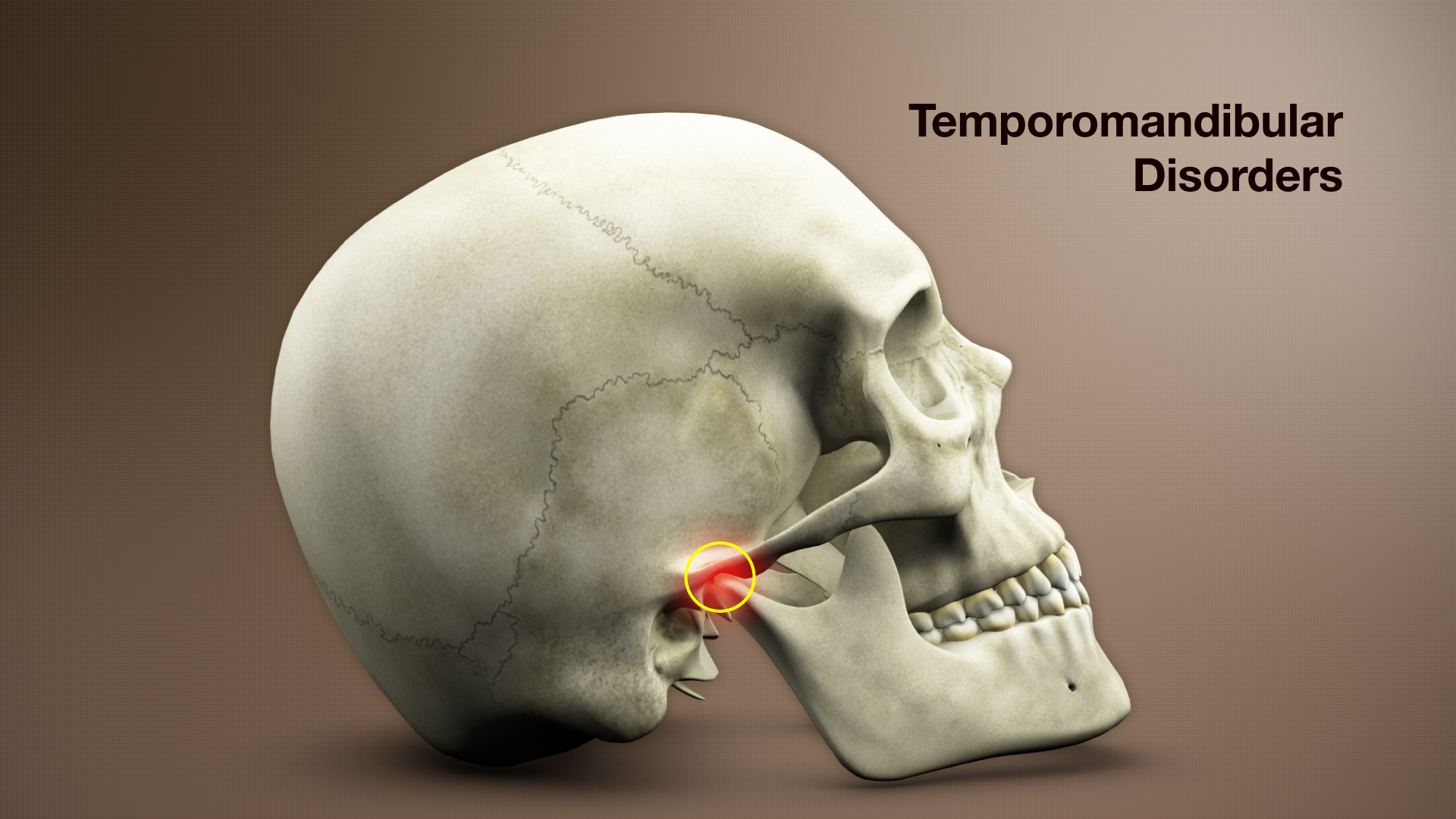Temporomandibular joint disorder or TMJ disorder or TMJ is a type of disorder that affects the joints in people’s jaw inhibiting movement and causing pain in the jaw joint and muscles. The temporomandibular joint is located on each side of the jaws which acts as a sliding hinge and connects the human jawbone to the skull. TMJ disorder affects women more than men.

Symptoms
The signs and symptoms of TMJ disorder are as follows:
- Tenderness or pain in the jaw
- Aching pain in the facial region
- Stiffness or locking of joint, discomfort in opening or closing mouth
- Problem and pain while chewing
- Aches and pain in the surrounding ear and neck region
- Clicking or popping sound at the TMJ site
- Painful movement of the jaw
- Malocclusion or shift of the jaw
These symptoms may arise on either one or both sides of the face.
Causes
As per medical resources, researchers have been unable to identify the exact cause of TMJ disorder. Trauma to the joint or jaw can be a possible convict of the emergence of disorder. Some other notable causes that have a pivotal role in TMJ are as follows:
- Arthritis
- Clenching or grinding teeth habit or bruxism
- Problems related to jaw structure from birth
- Erosion of the joint or the disk
- Misalignment of the disk
The temporomandibular joint envelops a hinge action with sliding motions. A small shock-absorbing disk separates parts of bones that are covered by the cartilage. This small disk helps in keeping smooth movement. Any kind of damage on that cartilage can also cause TMJ.
Treatment
As per medical resources, the majority of the cases associated with the TMJ disorder can be cured with the adoption of self-care practices, even at home. Doctors usually recommend the following to TMJ disorder patients:
- Eating soft foods
- Avoiding chewing gum and tougher foods, which involve lots of chewing
- Using ice to decrease swelling
- Reducing stress
- Decreasing jaw movements
- Trying jaw-stretching exercises for improving jaw movement
If the symptoms of the TMJ disorder don’t reduce or get cured through the above treatments, doctors have been seen to recommend the following:
- Medication to reduce pain
- Medication to decrease the swelling in the jaw such as corticosteroid drugs
- Drugs for providing relief to jaw muscles
- Stress reduction through cognitive behavioral therapy
- Reducing tension in muscles and nerves of jaw though Botox
- Prevention from teeth grinding by bite guards or stabilization splints
In rare cases, doctors and physicians recommend surgical treatments as per the patient’s condition, which includes:
- Surgery for replacement of joint
- Improving bite and alignment of teeth through corrective dental treatment
- Removing fluid and debris from the joint, or arthrocentesis
It is important to note that in many cases, symptoms become worse and pain increases. After consultation with the doctors about the potential risks associated with the disease, stress management could be taken up. Assistance in prevention from grinding teeth can also be taken through various guards and relaxants. Patients with TMJ have to adapt to the new lifestyle through medications for relief.
Disclaimer: The information in no way constitutes, or should be construed as medical advice. Nor is the above article an endorsement of any research findings discussed in the article an endorsement for any of the source publications.








